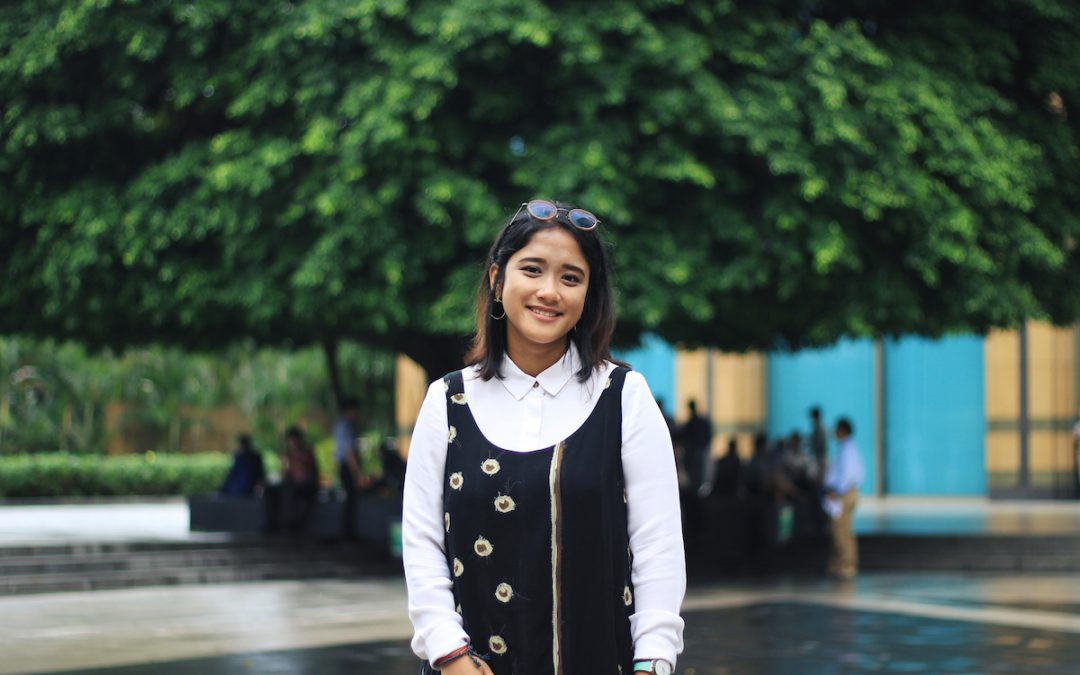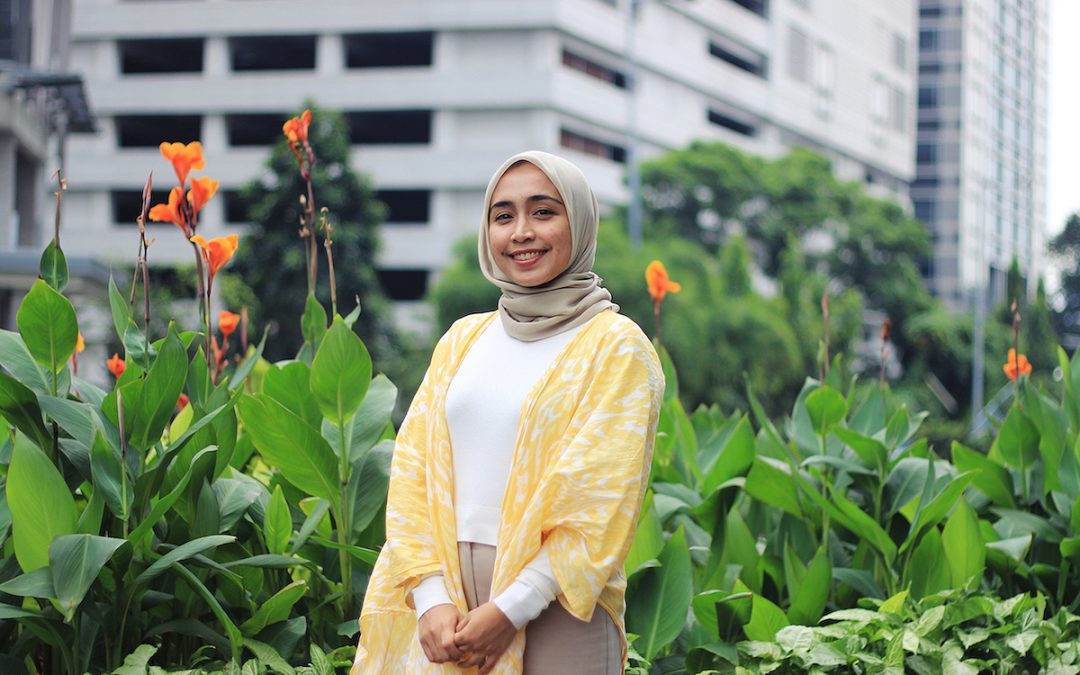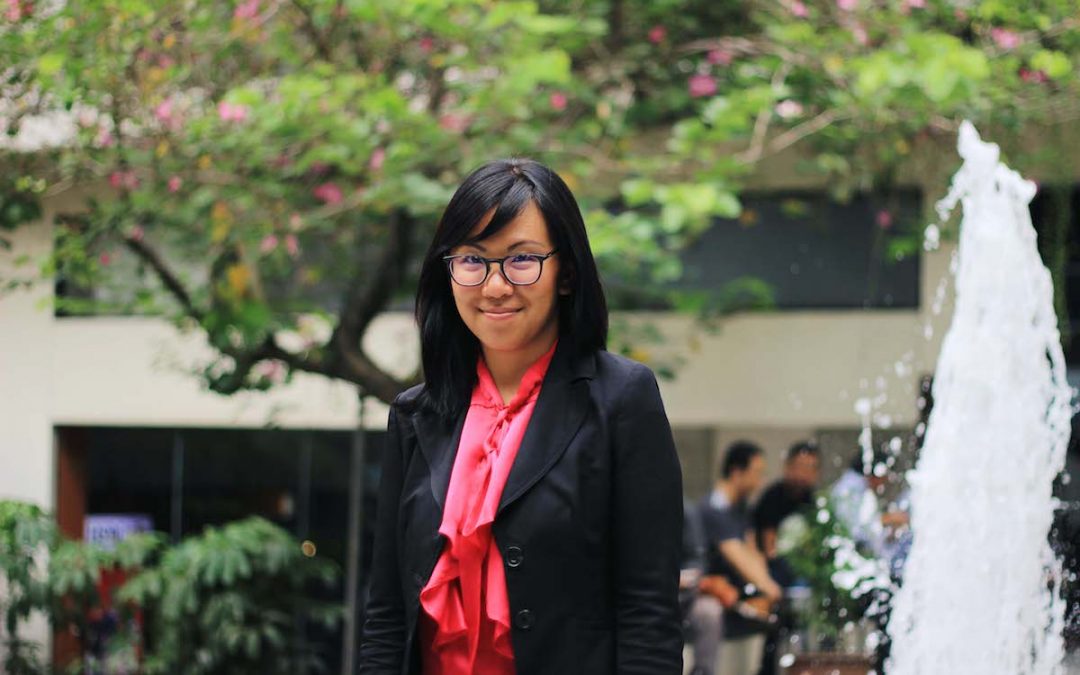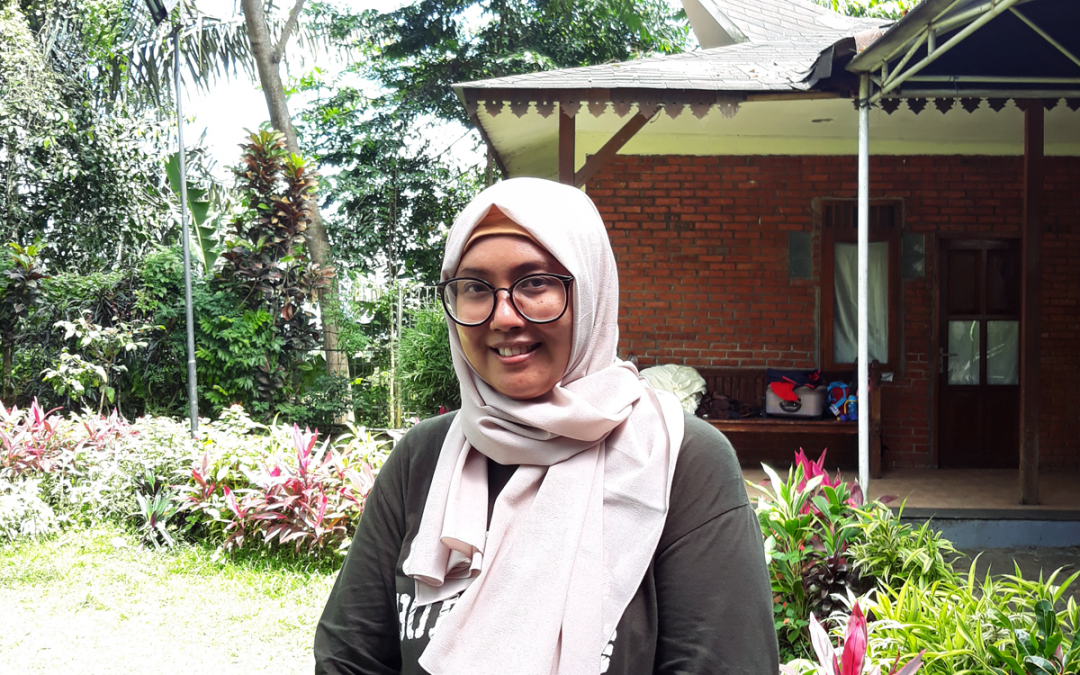Tell us a bit about yourself.
My name is Namira Puspandari. I am a program coordinator at an international NGO called Foundation for International Human Rights Reporting Standards (FIHRRST), founded by some human rights celebrities in Indonesia: Marzuki Darusman, Makarim Wibisono, H.S. Dillon and James Kallman. As program coordinator, I handle human rights issues such as religious tolerance, minority rights, and the death penalty in Indonesia. I’m also in charge of the development of our work in our Brussels office.
The story of how I got this job is actually pretty funny. In Jakarta, I attended a business and human rights conference. One of the speakers was my would-be boss. I was very interested in his speech; after he was done, I went up to him and asked him some questions. I was like, “Oh yeah, your speech was amazing, I had no knowledge about business and human rights. I learned about it in school but not as in-depth as in your speech. And by the way, are you recruiting?” The next thing I knew he was like, “Oh you should come to our office!” And then a few weeks after that, I started working at FIHRRST.
So that’s how you do networking!
Yes (laughs). I’ve actually never gotten a job from a website or something. It’s never worked out for me. I always have to do it some other way. Even my previous job I got from LinkedIn. I was still in the Netherlands back then, desperately unemployed (again) after finishing my contract with an NGO in The Hague. And my would-be boss sent an InMail and told me he read my research and was interested in the possibility of working together.
What projects or initiatives have you spearheaded within your NGO?
The ones that are under my supervision right now are the prison reform project funded by the Tifa Foundation, an Open Society network and the one that I recently finished is a human rights short course for senior students at a pesantren (traditional Islamic boarding school) in Jombang, East Java, which is funded by the Canadian government through the Canadian Embassy in Jakarta.
How do you empower women through your projects?
The prison reform project implementation is in a women’s prison in Tangerang. We want to improve the psychological wellbeing of the prisoners and help reintegrate them into society. Basically, women that have just been released from prison usually face discrimination; they feel that they cannot engage even with their own families or feel like they cannot be good role models to their children. Those kinds of feelings can lead them to commit the same mistake. So we want to help them out, but at the same time we want to reduce the rate of recidivism. Women in prison fall into the category of vulnerable group. This is a way to empower them so that they will be ready when they have to reintegrate back into their communities.
And then regarding the short course – the focus is more on introducing or trying to advance the concept of freedom of religion to traditional Islamic school students. The idea is also about introducing equality and challenging them in thought. At first the women participants were a bit shy, but we always encourage them to participate in discussion and engage. At some point, they were as enthusiastic as the male participants. In the end they even showed more interest. When I was delivering my presentation, they asked me a lot of stuff: “Hey, can we do this, what do you think about women’s rights, can we voice our opinions?” It was a very remarkable experience, I would say.
What’s the situation when it comes to women in indonesia and employment opportunities?
I wouldn’t like to say that it is all equal. Because we know that it’s not yet there. Compared to our parents’ generation, though, it is so much better now. The concept of women working in Indonesia, I think it’s quite accepted and normalized. We can find more and more opportunities to develop ourselves and to work. Even if you travel to remote areas in Indonesia, women who have skills are running businesses. They run shops by themselves. When you go to a warteg (small local restaurant), you see those women, they cook by themselves and manage the store by themselves.
But there’s still a lot of homework to do.
Maybe we don’t really feel the discrimination because to us it’s slight. But it affects women from lower household incomes the most. I think the main reason why these women cannot find a proper job is due to lack of information They don’t know where to find a job or how: for instance, if I want to land a good job, where do I start?
Maybe it is also about education – it’s so important, the level of education. I think for people like us, we are quite privileged, right? If we wanted to get the same benefit or same salary as a man, we can always fight for it. But it’s not the same for women of lower household income. They don’t know how to do it, that’s the thing. And in most cases they don’t have the same access to information of how to find a good, proper job. There’s also women in the informal sector; a lot of women feel like they’re not workers. Because they’re not registered. Probably your housemaid at home doesn’t have an official labor contract. I’m pretty sure because mine doesn’t have one either. And as a result, they are prone to have their rights violated because they aren’t legally protected. It’s simply because they don’t know how to voice their rights, and that what they do is still regarded as part of the informal sector.
So how do we empower women from going beyond opening a small warteg to opening a chain of them? How do we unlock the leadership potential of women?
We need a greater number of facilities to develop potential so that more women can hold those strategic positions. Employers should also acknowledge that we have the same capabilities as our male counterparts, that’s the most important thing. But we should also acknowledge that we have different needs.
In most cases that I’ve seen, when you are married and you have a kid, you feel like you have to choose between your family and your career. Currently, the perception is that if I hire this woman and she is recently married, then she will leave this office soon because she is on maternity leave. That will probably reduce the chance of that woman getting hired. A possible solution is applying the approach of Scandinavian countries and other European countries by giving paternity leave. This would be more fair. Employers would realize that not only women take leave upon having children, but also men. And it would also give women the chance to get back to work faster because the male partner would share in child-rearing responsibilities. This would also break the belief that only women who should have the main responsibility to take care of their children – it’s clearly a shared responsibility.
In the case of empowering former women convicts: How did they fall into that position in the first place? What made them resort to crime? What challenges do they face integrating back into society?
The biggest reason is financial. These women want to provide for their families. And that’s the the amazing thing about women: they would do anything, anything at all – even risking their lives – for their families. And that’s how they end up in prison. It’s not because they want to be a drug trafficker or something in the first place. It’s just the only way they know how to provide for their family. Again, it’s the lack of information on how to find proper job opportunities. They don’t know where to find the proper job and how.
And once these women try to get back to society, it is difficult for them to find a job due to the stigma against them. If you know this person is a former prisoner, there’s probably something in your mind, like a stigma that you cannot help. Of course you don’t want to discriminate against that person, but there’s something in your mind that says, “Oh she committed a crime against the law.”
So that’s difficult for them, even if they want to find a proper job. Even before they start working, if their prospective employee finds out they’re ex-prisoners, it’s over for them.
It’s a whole cycle.
Have you yourself faced any challenges being a working woman?
At work, I don’t really find any significant challenges based on my gender. I mean, it’s a human rights NGO, so we should all respect each other or there’s something wrong there (laughs). But from society, I do find challenges…some resistance, like from relatives who don’t understand the nature of my work. They think what I do is trying to implement a western agenda, trying to alter our culture while it’s not the case at all. When you talk about morality or religion, those two concepts already recognize human rights – they acknowledge other people’s’ rights. It’s basically respecting each other and not hurting each other and being a good citizen.
The challenge I’ve found the most is trying to explain the nature of my work. Whenever I mention I work at an NGO, people ask, “What are you doing?” Even some say that women’s rights is part of a western agenda trying to destroy Indonesian women. That it is trying to alter the morals of women in our culture.
Do you have any advice for girls who want to assume leadership roles?
If you’re sure this is what you want to do, just do it. For me, I’m still exploring my approach, too. I don’t know the best formula of how to succeed. But I’m pretty sure this is what I want to do, so I keep on going. If you asked me for the magic formula on how to be the best in this field, I don’t really have the answer. But because this is what I want to do and I want to deliver the best – I’m doing it.
In terms of taking leadership – don’t you want to prove to yourself that you’re capable of taking bigger responsibility? I always want to challenge myself. I don’t want to prove something to everyone; I just want to prove to myself that I can always push my limit. If, in the end, it leads you to a leadership position, that’s a plus from you being fearless.









